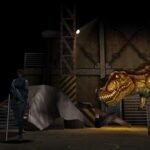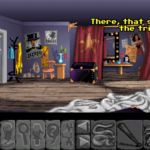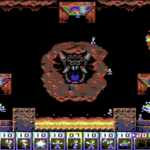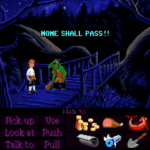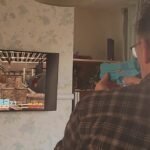Struggling to climb the ranks in Overwatch 2? Your individual skill might be solid, but without the right team composition, victory remains out of reach. The difference between winning and losing often comes down to how well your heroes work together.
Team composition is the secret weapon that separates casual players from competitive winners. These six proven compositions can turn the tide of any match, regardless of your current skill level. Master these setups and watch your win rate soar.
What makes a winning team composition
Overwatch 2 uses a 1-2-2 role structure: one tank, two damage dealers, and two support heroes. But simply filling these roles isn’t enough. The magic happens when heroes complement each other’s abilities and cover weaknesses.
Synergy is everything. When Winston dives in, Tracer and Genji should follow. When Reinhardt charges forward, his team needs to push with him. Each hero should enhance their teammates’ strengths while protecting their vulnerable moments.
Key elements of strong team compositions:
- Ultimate coordination – Combining ultimates for maximum impact
- Range variety – Covering both close and long-distance engagements
- Mobility balance – Matching movement speeds across the team
- Damage output – Ensuring sufficient firepower to secure eliminations
- Survivability – Keeping the team alive through healing and protection
Communication ties everything together. Even the perfect composition fails without proper callouts and timing. Teams that talk together, win together.
6 team compositions that win games
1. Brawl comp
Core Heroes: Reinhardt, Reaper, Cassidy, Ana, Lúcio
Built for close-range teamfighting, this composition dominates tight spaces. Reinhardt leads the charge while Reaper and Cassidy deal massive damage up close. Ana provides crucial healing and anti-healing, while Lúcio keeps everyone moving forward.
Best situations: Escort maps, chokepoints, against other brawl compositions. Struggles on open maps where enemies can maintain distance.
2. Classic Dive comp
Core Heroes: Winston, Tracer, Genji, Lúcio, Ana
This composition excels at quick engagements and target elimination. For players looking to master these advanced dive strategies, services like Boost Factory offer coaching and gameplay analysis to help refine mechanical execution. Winston creates space by diving the backline while Tracer and Genji follow up with high mobility damage. Lúcio provides speed boost for quick rotations, and Ana offers long-range healing plus sleep dart protection.
Best situations: Control maps, against slow-moving compositions, when your team has superior mechanics. Avoid this comp crowd control or when facing experienced Brigitte players.
3. Double shield
Core Heroes: Sigma, Orisa, Widowmaker, Hanzo, Baptiste, Mercy
Maximum protection meets ranged damage in this defensive powerhouse. Two barriers create a fortress while snipers pick off enemies from safety. Baptiste provides area healing, and Mercy damage boosts for crucial eliminations.
Best situations: Defense rounds, against projectile-heavy teams, on maps with long sightlines. Vulnerable to coordinated dive attacks.
4. Poke comp
Core Heroes: Sigma, Hanzo, Soldier: 76, Baptiste, Zenyatta
This setup applies constant long-range pressure to wear down opponents. Sigma blocks incoming damage while Hanzo and Soldier pick off enemies from safe distances.Just like RTX Remix enhances classic games, this composition adds tactical depth through sustained pressure and team synergy. Baptiste provides immortality field protection, and Zenyatta amplifies damage through Discord Orb.
Best situations: Hybrid maps, against dive compositions, when your team has superior aim. Less effective against fast-moving rush strategies.
| Composition | Best Maps | Counters | Key Strategy |
| Dive | Control/KOTH | Anti-dive setups | Quick eliminations |
| Brawl | Escort/Tight spaces | Long-range comps | Close combat |
| Poke | Hybrid/Open areas | Rush compositions | Distance pressure |
5. Rush comp
Core Heroes: Junker Queen, Reaper, Symmetra, Lúcio, Brigitte
Speed is life in this aggressive composition. Junker Queen leads the charge with her commanding shout while Reaper provides close-range devastation. Symmetra’s teleporter enables surprise flanks, Lúcio offers speed boost, and Brigitte heals through combat.
Best situations: Attacking chokepoints, against stationary compositions, when coordination is high. Struggles against well-positioned long-range setups.
6. Anti-dive comp
Core Heroes: Orisa, Cassidy, Torbjörn, Brigitte, Baptiste
Designed to shut down enemy dive attempts, this composition punishes aggressive plays. Orisa provides crowd control and protection while Cassidy and Torbjörn deal with flankers. Brigitte offers anti-dive support, and Baptiste keeps everyone healthy.
Best situations: Against dive compositions, on defense, when facing superior individual skill opponents. Less effective against patient poke strategies.
Tips for success with any team comp
Communication wins games. Call out enemy positions, coordinate ultimate usage, and share important cooldown information. Even basic callouts like “Winston low” or “Tracer flanking” make huge differences.
Adapt based on enemy composition. If the enemy switches to counter your strategy, be ready to adjust. Flexibility separates good players from great ones. Don’t stubbornly stick to a failing game plan. With upcoming changes to Overwatch 2 potentially introducing new gameplay mechanics, staying adaptable becomes even more crucial for long-term success.
For live discussion, feedback, and theorycrafting, the official Overwatch forums are a goldmine for team comp ideas and patch response strategies.
Practice hero synergies in training modes or quick play before jumping into competitive. Understanding ability combinations and timing takes practice. The more comfortable you are with your teammates’ kits, the better your coordination becomes.
Key success factors:
- Ultimate timing – Don’t waste game-changing abilities
- Positioning – Stay grouped according to your composition type
- Target priority – Focus fire on the right enemies
- Resource management – Use abilities efficiently
Common team comp mistakes to avoid
Playing heroes that don’t synergize is the biggest mistake. Don’t pick your favorite hero if they don’t fit the team strategy. A mediocre composition with good teamwork beats individual star players every time.
Ignoring enemy composition counters leads to frustrating losses. If the enemy runs Pharah and you have no hitscan, someone needs to switch. Recognize hard counters and adapt accordingly.
Poor positioning for your comp type wastes your team’s advantages. Brawl comps need to group up, dive comps need mobility, and poke comps need distance. Play to your composition’s strengths.
Not communicating ultimate timing results in wasted opportunities. Coordinate game-changing ultimates like Graviton Surge combos or nanoblade executions. Practice callouts for maximum impact.
Conclusion
Choosing the right team composition transforms average players into winners. These six proven setups work across all skill levels when executed properly.
Practice these compositions, communicate with your team, and adapt based on the situation. Your climb to higher ranks starts with better teamwork, not just individual skill.
Affiliate Disclosure: Some of the links in this post may be affiliate links, which means I may earn a small commission if you make a purchase through those links. This comes at no extra cost to you. Thank you for your support!
